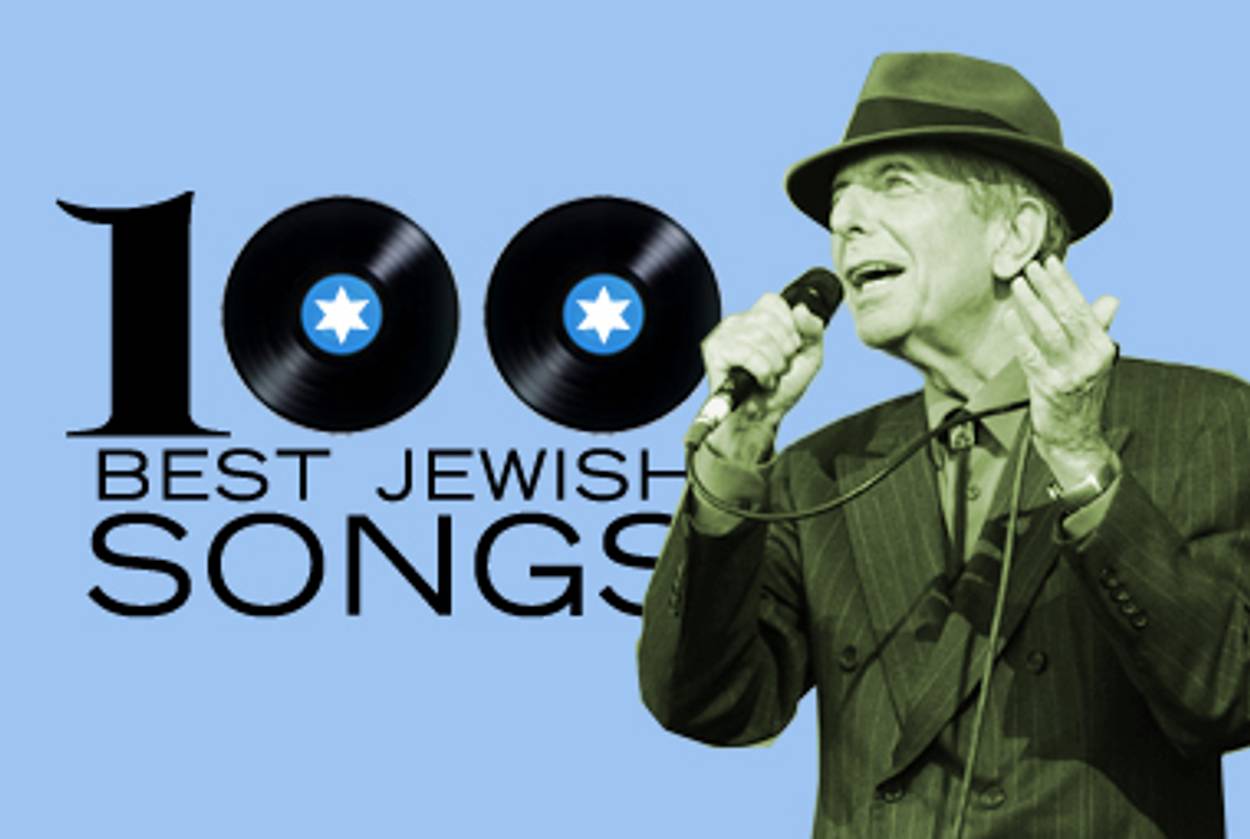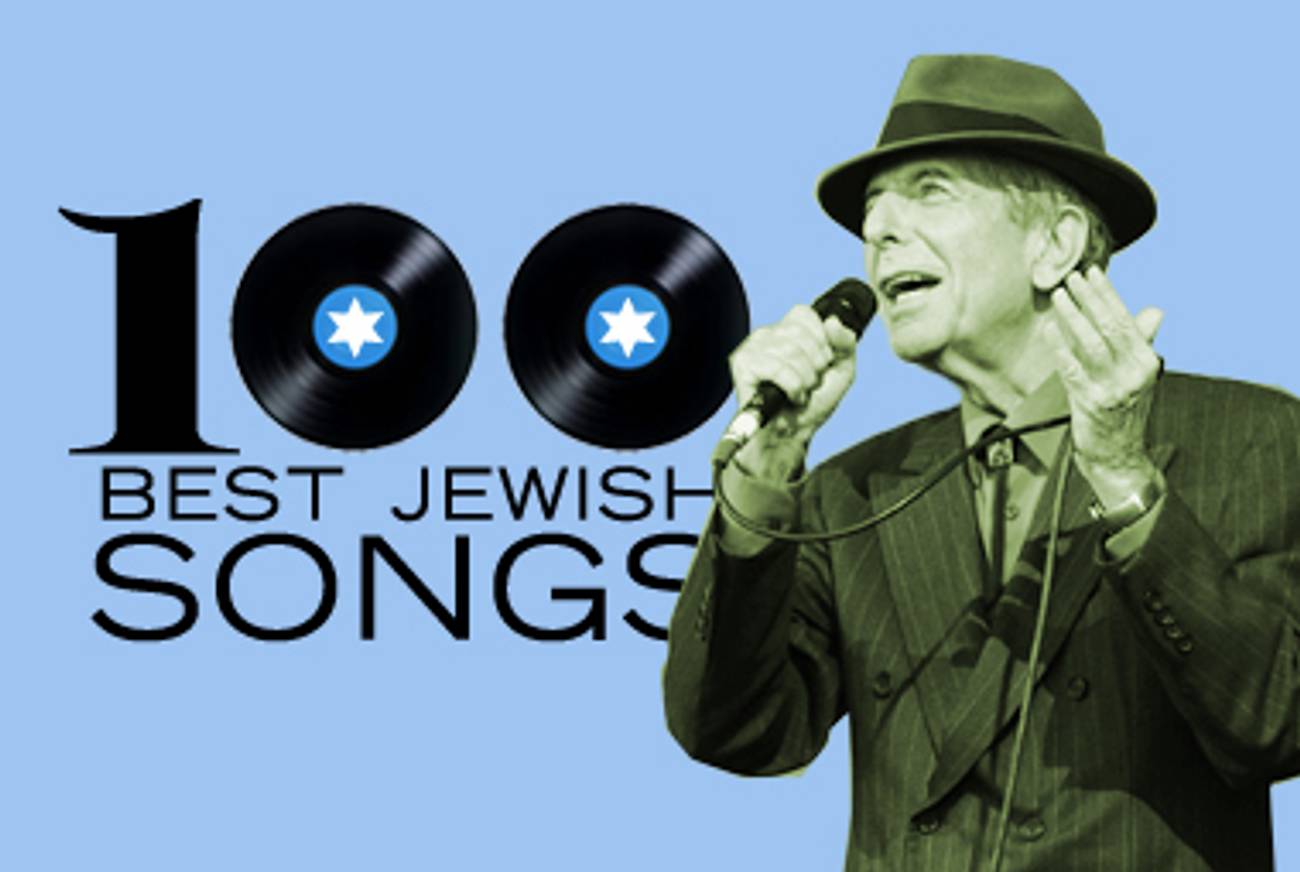Better than Hallelujah?
Taking issue with our song list’s Leonard Cohen selection




To me, Jody Rosen and Ari Y. Kelman’s stellar list of 100 great Jewish songs was not meant to be taken as gospel. Rather, like all great best-of lists, it is an invitation to a discussion about the artists and the songs we find most meaningful, and the qualities, not always immediately perceptible, that make them Jewish.
As an obsessive fan and future biographer of Leonard Cohen, the list got me thinking about which one of the poet laureate of Jewish theology’s songs is most befitting for inclusion in a top 100 countdown. Rosen and Kelman selected “Hallelujah”; while certainly a strong choice—it is, by far, Cohen’s most popular work, and the lyrics involve David and Samson, Bathesheba and Delilah, and other biblical flavorings—it’s not one I would make. While a musical masterpiece, “Hallelujah,” I believe, is one of Cohen’s least Jewish songs.
It’s not just the mention of the holy dove—the earthly manifestation of the Holy Spirit in Christian iconography. The entire song is riddled with imagery that could easily be borrowed from other traditions, from the vaguely Protestant minor fall and major lift to the Lord of Song, a reference, possibly, to the literal meaning of the Bhagavad Gita.
Other Cohen songs, I think, come much closer to exploring his serious and evolved Jewish theology. Several of our readers suggested “Who By Fire,” the lyrics of which are adapted from the Unetaneh Tokef prayer. My own top-three list is as follows:
1. Anthem: “Ring the bells that still can ring / Forget your perfect offering / There is a crack in everything / That’s how the light gets in.” To my mind, the best expression of the Jewish idea of redemption ever put to music.
2. Story of Isaac: “You who build these altars now / to sacrifice these children, / you must not do it anymore. / A scheme is not a vision / and you never have been tempted / by a demon or a god.” Unlike Dylan’s glib take on the sacrifice, Cohen is in full prophetic mode.
3. The Future: “You don’t know me from the wind / you never will, you never did / I’m the little Jew / who wrote the Bible. / I’ve seen the nations rise and fall / I’ve heard their stories, heard them all / but love’s the only engine of survival.” The history of the Jews in a few devastating lines.
Agree? Disagree? Got your own Cohen favorites you want to share? Kindly post ‘em in the comments. This discussion has only just begun…
Liel Leibovitz is editor-at-large for Tablet Magazine and a host of its weekly culture podcast Unorthodox and daily Talmud podcast Take One. He is the editor of Zionism: The Tablet Guide.